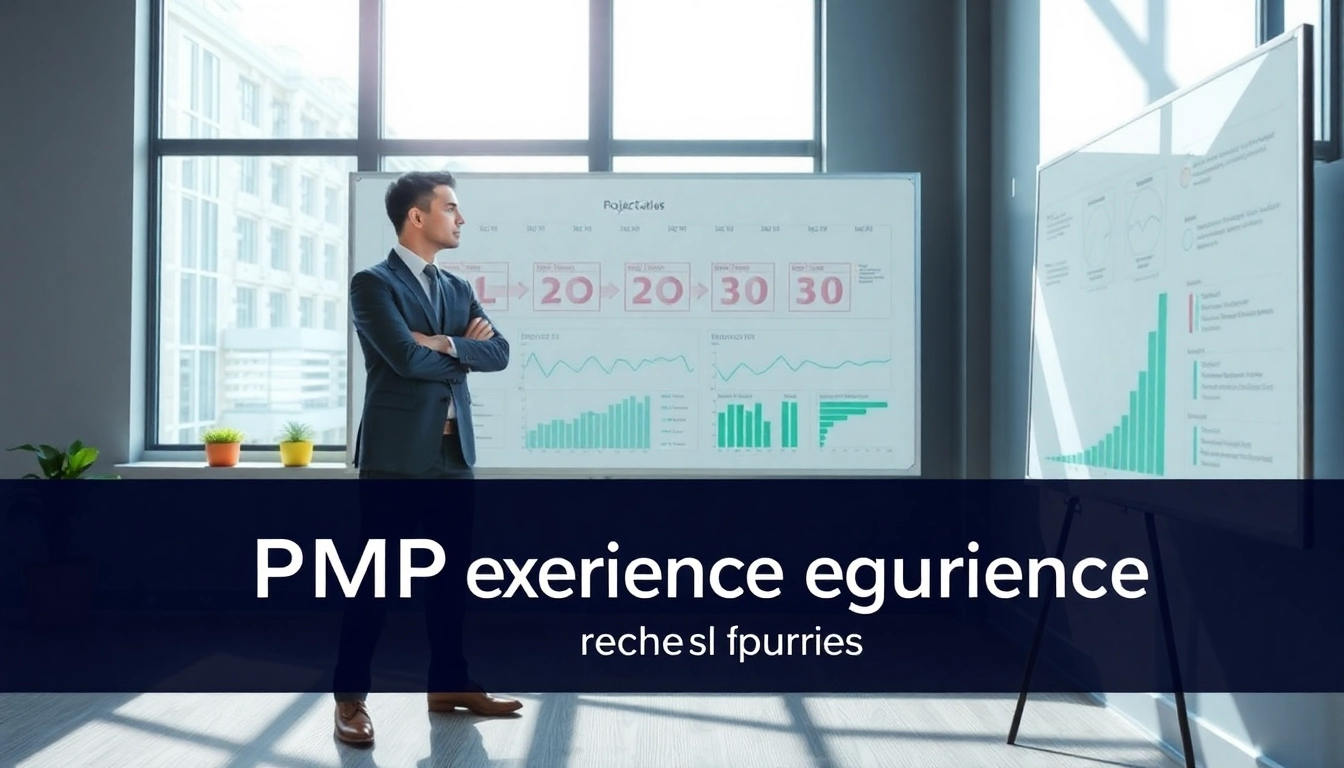Understanding PMP Experience Requirements
What are PMP Experience Requirements?
The Project Management Professional (PMP) certification, offered by the Project Management Institute (PMI), is one of the most recognized credentials in the field of project management. One of the critical components for obtaining this certification is meeting the PMP experience requirements. These requirements are designed to assure that candidates possess not only theoretical knowledge but also practical experience in managing projects effectively. Candidates must demonstrate that they have a specific number of hours leading and directing projects, along with a requisite level of project management education and training.
Why PMP Experience Requirements Matter?
Understanding and meeting the PMP experience requirements is crucial for several reasons. First, they serve as a benchmark for the candidate’s capability to understand project management principles and practices applied in real-world scenarios. The certification aims to form a qualified pool of project managers who can handle complex projects efficiently and lead teams toward success. Moreover, demonstrating adequate experience helps candidates stand out in a competitive job market, as organizations often prioritize certified individuals who showcase a proven track record of success in project management.
Common Misconceptions Around PMP Experience Requirements
Despite the clarity surrounding the PMP experience requirements, several misconceptions persist among aspiring project managers. One prevalent myth is that only formal project management roles qualify toward the experience requirement. In reality, PMI allows a broader interpretation, which includes any professional work experience that involves managing projects, regardless of the formal title. Additionally, many believe that only experience gained in traditional corporate settings counts; however, volunteering, internships, and small projects also contribute significantly to fulfilling these requirements. Understanding these nuances is key to accurately assessing one’s qualifications and enhancing their project management career.
Navigating the Path to Qualifying Experience
Types of Project Management Experience
To meet the PMP experience requirements, candidates must accumulate a specific number of hours leading and directing projects, which varies depending on their educational background. Generally, candidates with a four-year degree need 4,500 hours of experience over at least three years, while those without a degree only require 7,500 hours over five years. The key is to ensure that the experience involves a variety of project management tasks such as planning, executing, monitoring, and closing projects. Projects can range in duration, size, and complexity – encompassing everything from large corporate projects to community initiatives.
Documenting Your Experience Effectively
Documentation of project management experience is a vital step toward certification. Candidates should keep a comprehensive record of their roles, responsibilities, and contributions to each project. A Project Experience Questionnaire can help structure this documentation and include essential details such as project names, durations, types, and specific tasks performed. The accuracy and clarity in documenting experience not only facilitate a smoother application process but also prepare candidates for potential audits by PMI. It’s advisable to review and update this record regularly, as experiences can accumulate quickly and become beneficial for future opportunities.
Tools and Resources for Tracking Experience
Utilizing tools and resources can streamline the process of tracking and documenting project management experience. Online project management software and applications allow users to log hours, track project milestones, and share documentation with team members. Tools like Microsoft Project or Asana can help manage individual project contributions effectively. Additionally, utilizing platforms dedicated to professional development, such as LinkedIn Learning or Coursera, can offer courses that not only enhance skills but also provide official certificates that can support experience documentation.
Meeting the Educational Prerequisites
Formal Education and Its Impact on PMP Experience Requirements
Educational background plays a significant role in the PMP experience requirements. Having a bachelor’s degree reduces the number of project management hours needed from 7,500 to 4,500. PMI recognizes degrees in project management and related fields like business management, engineering, or IT as credible educational foundations. Furthermore, completing specific PMP-related courses or attending training programs also contributes to the total educational hours required for certification.
Potential Waivers for Educational Background
For individuals without a formal degree, PMI does offer an avenue through which to qualify, allowing candidates to substitute relevant project management training for academic requirements. This involves completing specific PMI-approved training programs that provide a minimum of 35 contact hours in project management education. Understanding and taking advantage of these training programs can vastly improve a candidate’s chances of meeting the educational prerequisites for certification.
Choosing the Right PM Courses to Enhance Experience
Selecting the right project management courses enhances not only academic credentials but also practical skills needed to excel in project management roles. Programs focusing on agile methodologies, risk management, and leadership can make candidates more competitive. When choosing courses, consider those that align with your career goals and current market trends. Additionally, programs that offer capstone projects or real-life project management simulations provide invaluable hands-on experiences that can contribute to fulfilling the PMP experience requirements effectively.
Gaining Relevant Experience Through Practical Application
Internships and Volunteer Roles in Project Management
Internships and volunteer roles offer excellent platforms for gaining relevant project management experience. Engaging in internships, whether paid or unpaid, allows candidates to work within a professional environment, learn from experienced project managers, and take on responsibilities that contribute to meaningful project outcomes. Additionally, volunteering for community or non-profit organizations provides opportunities to lead or assist in project-based activities, offering practical experience that can be documented toward the PMP experience requirements.
Networking for Experience Opportunities
Networking is an invaluable tool for identifying and seizing project management opportunities that can help meet the experience requirements. Attending industry conferences, joining professional organizations, and connecting with peers on social media platforms like LinkedIn can facilitate introductions to project management roles. Engaging with project management communities provides insights into available projects and helps build professional relationships that can lead to mentorship opportunities, job leads, or collaborative experiences.
Real-World Projects That Build Essential Skills
Capturing experience through real-world projects allows candidates to develop essential project management skills in a practical setting. Whether through small-scale projects at work or participation in community initiatives, taking the initiative to manage aspects of a project helps establish a solid foundation for future endeavors. Skills developed may include team coordination, stakeholder management, and risk assessment – all vital elements of the project management process. As candidates accumulate experience, they not only move closer to fulfilling the PMP experience requirements but also enhance their overall practical expertise.
Preparing for the PMP Examination
How PMP Experience Requirements Influence Study Plans
The PMP examination is rigorous and comprehensive, consisting of 200 multiple-choice questions that assess a candidate’s understanding of project management principles and methodologies. Preparing for this examination should include a study plan tailored to one’s specific experience and strengths. Understanding the PMP experience requirements helps pinpoint which areas may need additional focus or revision. By aligning study materials with practical experience, candidates reinforce their knowledge base while approaching the exam.
Mock Exams and Study Groups for PMP Success
Participating in mock exams and study groups is an effective way to prepare for the PMP examination. Mock exams simulate the testing environment, helping candidates become comfortable with the exam format and question styles. Study groups provide candidates with a support system where they can discuss challenging topics, share resources, and clarify doubts related to the project management body of knowledge (PMBOK). Engaging collaboratively not only reinforces understanding but also fosters networking, which can lead to future professional opportunities.
Maintaining Your Project Management Skills Post-Certification
Certifying as a PMP is just the beginning of a project manager’s journey. Continuous professional development is essential to ensure skills remain relevant and current. Keeping abreast of industry trends, enrolling in professional development courses, and staying involved in project management communities can further enhance skills. Additionally, engaging in new projects keeps the theoretical and practical knowledge fresh, allowing project managers to adapt to evolving challenges and requirements in this dynamic field.


